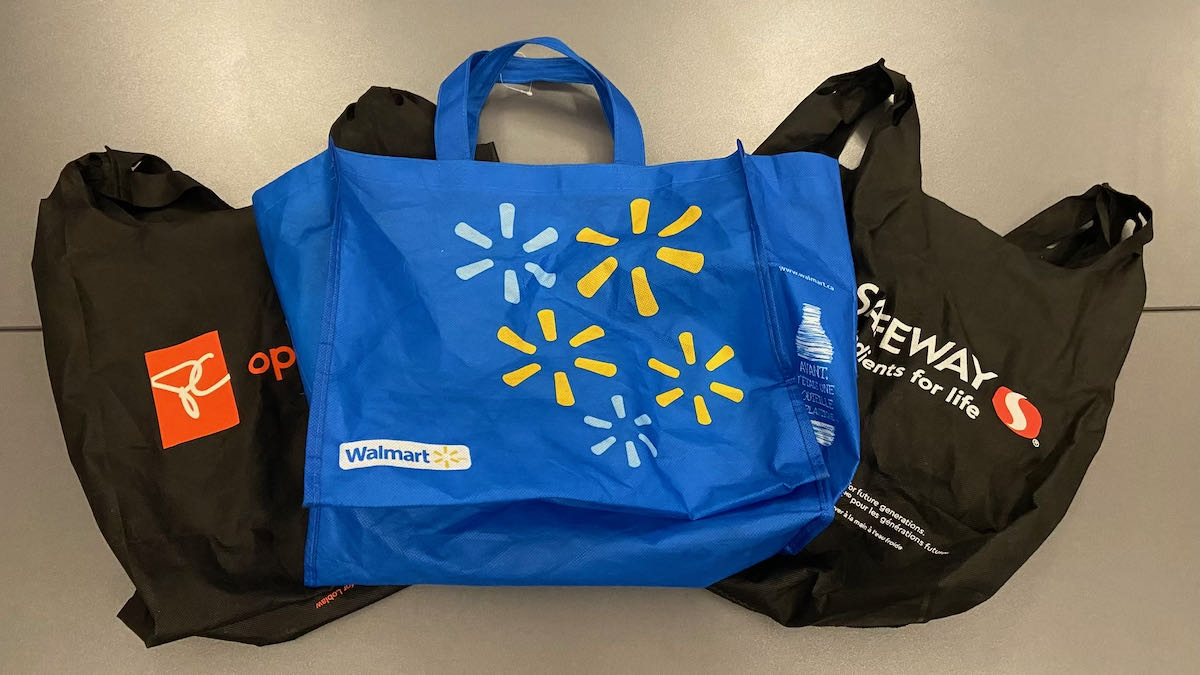I used to think I was like everyone else. I’d walk into the grocery store, start filling the cart or the basket, and realize that I left my reusable bags in the trunk of my car.
Do I go back and get the bags. Nah. A paper bag is just a few cents, right?
And so, the collection of paper and reusable bags grows.
But, a recent study from the City of Edmonton’s administration indicates that I’m in the minority. Now that plastic bags have been banned, and a City bylaw requires you to pay 15 cents for a paper bag, or a loonie for a reusable sack, we’ve become better and better at prepping before we shop.
A City study showed that 73.4 per cent of Edmontonians always or “almost” always remember to bring reusable bags with them when they shop. The waste survey of more than 7,000 Edmontonians was discussed by the City’s Utility Committee this past week.
The fees for bags are set to be raised to 25 cents for paper and a toonie for reusable bags in July. That price hike was previously approved by city council, and has been public since the summer of 2023. The committee saw no reason to change course from that decision.
The money doesn’t go to the City. It’s not a tax. It’s a requirement for retailers to sell the bags, and not give them away. They are encouraged to use any profits on bags on environmental causes, but they are free to do with the money as they wish.
Sean Stepchuk, the co-founder of Waste Free Edmonton, urged the city councillors on the Utility Committee to stay the course with the scheduled hike on bag prices.
“Importantly, with reusable bags, I think I can safely say that pretty much everybody has access to a reusable bag; a backpack, a bag they got from a convention, one that they’ve bought in the past,” said Stepchuk. “I can say that when I go grocery shopping, I still use the cloth bag that in bright sequins says ‘bride to be’ that my wife got at her stagette 15 years ago. These things are meant to be reused and can be reused for years and years.”
A little more than 51 per cent of the survey respondents agreed or strongly agreed that we need to reduce the use of single-use items like bags and straws.
“Over 50 per cent of Edmontonians think this is a reasonable bylaw move, that really stands out,” said Coun. Erin Rurherford.
Edmonton staff reached out to other cities to see where they stand on bag/waste reduction, and found this city’s increases are not out of line. Administrators in Washington, D.C. learned that tying the purchase of bags to litter clean-up and environmental causes can backfire.
“If customers believe the bag fees will directly help the environment, they are less likely to avoid bags and more likely to purchase a bag to ‘support’ the cause,” warned the report, citing the American capital as the example. “This would ultimately lead to additional waste, undermining goals to reduce bags in circulation.”
There are currently no hard numbers when it comes to how much waste has been reduced — or if waste has been reduced — since the bag charges came into effect. The committee heard an “anecdotal” estimate of about a 10 per cent reduction.
What the committee voted on was to do further studies on the attitudes of those 24 and under to the bag charges, and to those making less than $60,000 a year.
Savvy AF. Blunt AF. Edmonton AF.




